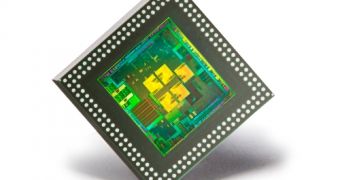Some people may have read about our report on the server deals that ARM has signed, but a certain tidbit of information stands out more than the rest.
It appears that, after years and years of exertions, ARM Holdings finally has an architecture with 64-bit support.
People not versed in technobabble probably don't know, or care, but the lack of support for 64-bit processing has been, and still is, one of the greatest barriers in front of ARM.
The company used to make only phone/handset chips, but then branched into tablets and began to scout possibilities of expanding onto the server and PC fronts.
The lack of 64-bit instructions never let it see any relevant success though. Power efficiency has always been the main selling point of ARM chips, particularly in comparison to x86, but even the greatest energy advantages in the world can't make up for performance handicaps.
Now, the ARMv8 architecture has the A64 instruction set, which means that server makers won't have to settle for 32-bit support anymore when building energy-efficient machines.
In other words, ARM Holdings now has everything it needs to compete with Intel in this market field.
Moreover, the 64-bit support will help on the tablet and smartphone segment as well. The architecture already has a tight grip on these product types, but standards are growing quickly.
To provide context, NVIDIA is determined to use Kepler-level GPUs in superphones, which means that future Tegra platforms will need processing cores on the same level. There is also that plan to make Tegra SoC stronger than the ones used in Xbox 360 game consoles by 2014.
If ARM succeeds in releasing 64-bit capable processors by year's end (2012), the first products based on them will be launched in 2013. Sure, we'll have to wait and see before anything becomes clear, but Intel might start feeling pressure soon.

 14 DAY TRIAL //
14 DAY TRIAL //